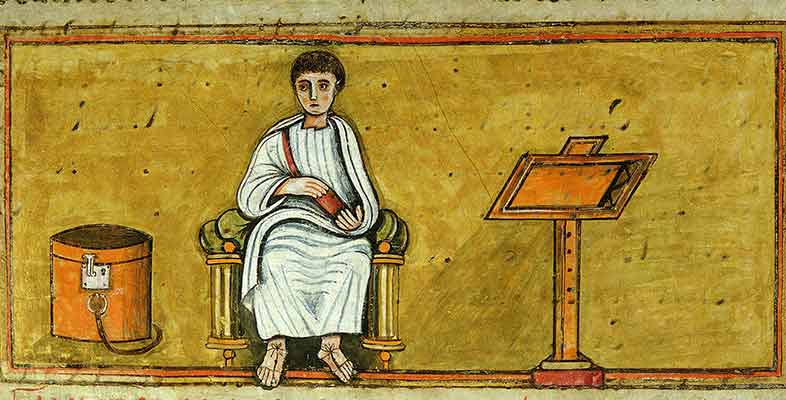2.3 The Renaissance to the modern era
The Renaissance in Europe, the Enlightenment in Britain, and the growth of science and technology in the nineteenth and twentieth centuries, produced thousands more words derived from Latin, such as administration, computer, decimal, horticulture, interface, molecule, missile, satellite and superhuman.
This is a huge and fascinating topic. If you would like to think about it in greater depth, you could read Latin in our Language by Peter Barker − see the ‘ Further reading ’ section for full publication details. This book contains many vocabulary exercises.
In English there are often two words expressing the same idea, one of Anglo-Saxon origin, the other of Latin origin. Anglo-Saxon words can often seem more simple and straightforward in style, while Latinate words can seem more scientific and academic. So simple words and phrases such as go down, high, sad, speed up, watch, hate, do well and hide, for example, can be contrasted with words of Latin origin like descend, elevated, miserable, accelerate, observe, detest, succeed and conceal. But do bear in mind that not all words derived from Latin sound elevated: remember the homely words of Latin origin you met in Section 2, like cheese, peas and sock !
Activity 2
In addition to the words which have derived from Latin or from Latin through French, English also uses a number of words taken straight from Latin without any change. See if you can match the following Latin/English words with the meanings of the original Latin words below.
Using the following two lists, match each numbered item with the correct letter.
agenda
data
exit
formula
fungus
innuendo
lens
media
plus
referendum
vacuum
a.things to be discussed
b.more
c.he/she goes out
d.rule/method
e.lentil
f.empty thing
g.by hinting
h.things in the middle
i.things given
j.thing to be referred
k.mushroom
- 1 = a
- 2 = i
- 3 = c
- 4 = d
- 5 = k
- 6 = g
- 7 = e
- 8 = h
- 9 = b
- 10 = j
- 11 = f
